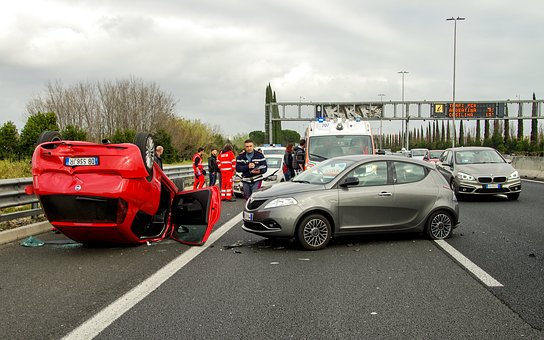5 Steps to Take After a Car Accident
 Most people would agree the unexpected is much easier to deal with when preparations have been made and there is a plan in place. This is the entire value proposition for insurance policies. Vehicle accidents remain one of the most hazardous unexpected events in most people’s lives for reasons which might surprise many of those same people.
Most people would agree the unexpected is much easier to deal with when preparations have been made and there is a plan in place. This is the entire value proposition for insurance policies. Vehicle accidents remain one of the most hazardous unexpected events in most people’s lives for reasons which might surprise many of those same people.
For that reason alone, a plan for dealing with the aftermath of a car accident is an indispensable element in any driver’s life. It is true that insurance can rectify many of the problems that arise from an accident, but insurance alone can’t provide for every possible hazard. To be well and truly prepared for an accident, a driver should take these four actions long before they find themselves stranded by the side of the road.
1- Safety First
Naturally, you should render first aid if anyone is injured and make certain the involved vehicles are moved out of traffic as quickly as possible. Safety is the top priority in any accident, regardless of fault or potential disputes later.
2- Secure Your Vehicle
Naturally, this advice depends on your vehicle’s mechanical integrity. If possible, you should follow as many of these recommendations as possible for reasons which will become clear. Your personal belongings should be locked in your trunk. Your windows should be rolled up and the vehicle should be locked. You should make certain you have the keys in your possession at all times.
Under absolutely no circumstances should you relinquish control of your vehicle, especially to a law enforcement officer. Doing so can be considered authorization to search the vehicle, which can create all kinds of misunderstandings and potential for further legal hassles later. If the police want to perform a search, have them produce a warrant. Otherwise keep your car locked tight.
3- Remain Silent
Vehicle accidents can expose drivers to both civil and criminal liability. For this reason alone any attorney alive will advise a driver to keep their mouth shut at the scene unless they are providing legally required documentation or identifying themselves.
This is doubly true if you are asked any questions by other drivers or law enforcement officers. You are under no obligation to discuss the details of the accident with other drivers, and you have a constitutional right to remain silent if questioned by police. If pressured, ask for an attorney. While it may sound borderline hostile to take this approach during a simple car accident, when you consider the potential for astronomical insurance rate increases, possible loss of your driver’s license and jail time, the necessity of keeping quiet should be rather obvious.
4- Identify Witnesses and Obtain Statements
Four months after your accident, you will want to be the person who can recreate the accident scene for a judge and jury. Granted, some accidents are undisputed, but when attorneys, insurance companies and litigious people get involved, what starts out as a simple accident can turn into the legal equivalent of the Siege of Bastogne.
For this reason, you should locate any potential witnesses to your accident, film their consent to be interviewed and get their statements at the scene. Make special note of where they were at the time of the collision, film the location and then film the accident scene from the location. This will help you illustrate the accident for future reference. Let witnesses talk at the scene. The more they say, the more information you’ll have to go on later. When this information is combined with the next step, you’ll have the maximum possible set of facts if you are required to defend yourself in court.
5- Photograph Everything
Since you’re likely carrying a portable television station with unlimited film in your pocket, there is no reason you shouldn’t obtain a full and complete photographic record of everything at the scene. Start with driver’s licenses and insurance cards, then move on to license plates, road conditions, traffic signs, vehicle damage and if possible, the interiors of all involved vehicles. While these pictures may not seem vital at the scene, they may become crucial evidence months later when you’re the only person who has them.
The unexpected is much easier to deal with when preparations have been made. Car accidents are no different. Make certain you have a qualified attorney available in the event of a dispute and do everything you can to protect your own interests. You can be certain everyone else will be doing the same, including your insurance company.
















